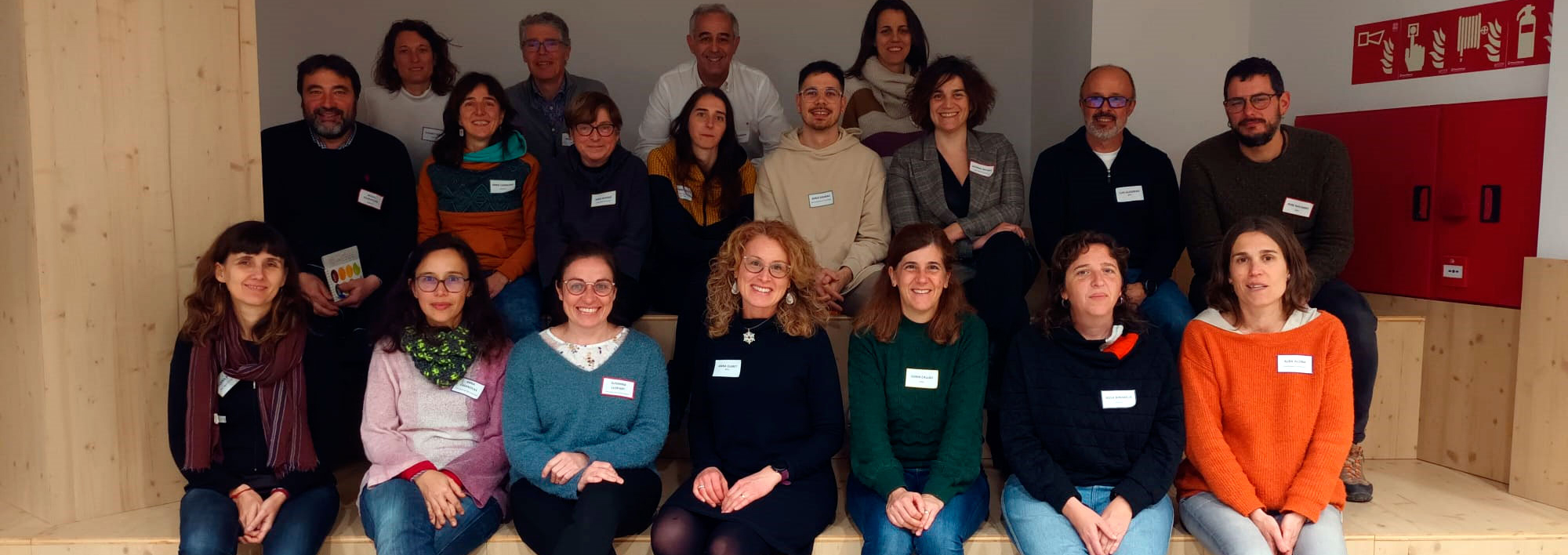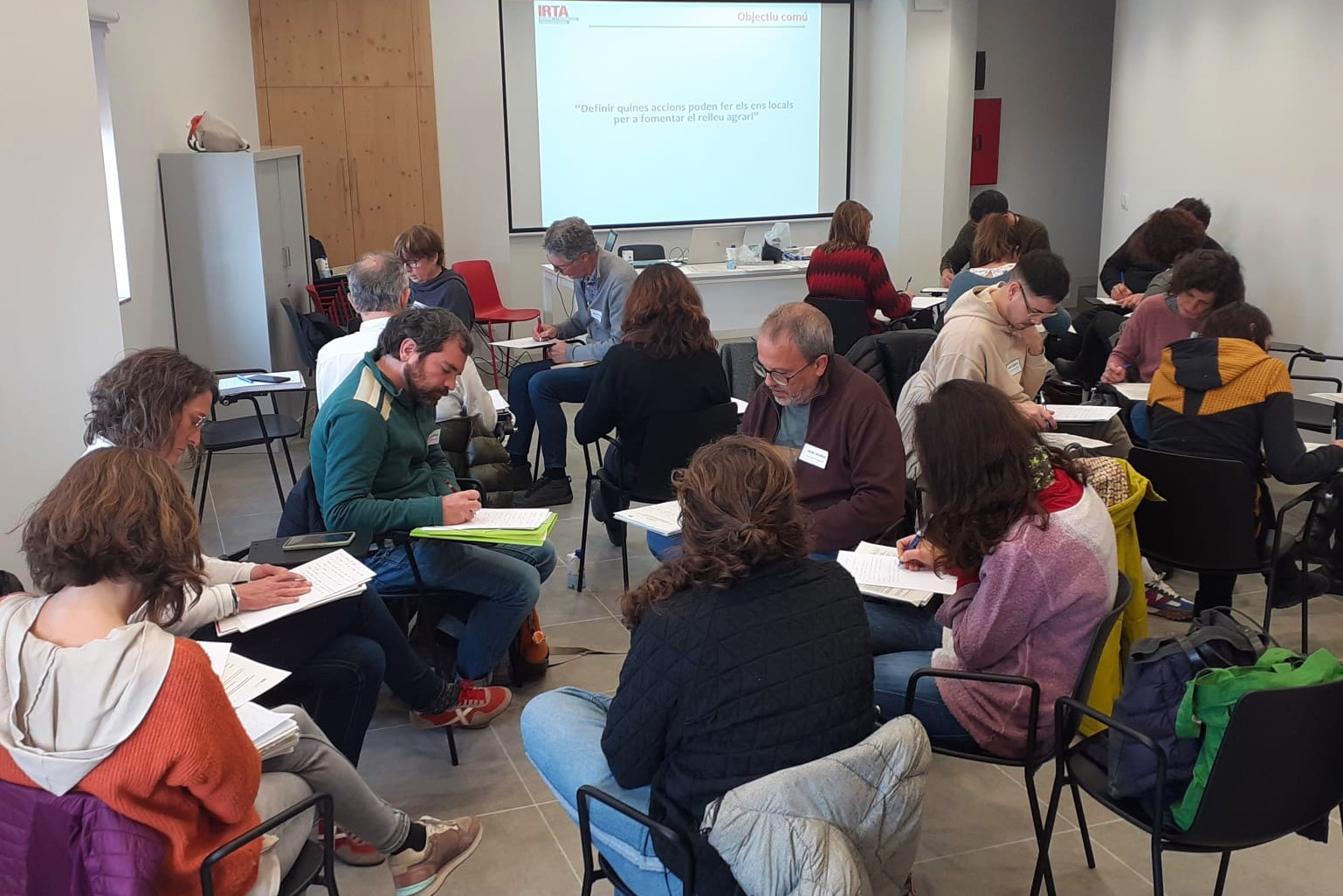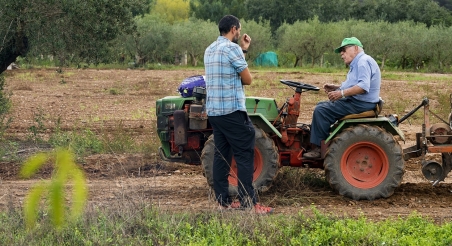The participatory event held yesterday in Montserrat Rural Park marked the beginning of an Action Plan for Agricultural Succession in the Barcelona region. Organised by the Barcelona Provincial Council, the event identified the challenges faced by entities managing and promoting agriculture in the region and discussed potential solutions to encourage generational change in the sector through the involvement of young entrepreneurs.
The session brought together around twenty entities and individuals concerned about the difficulties faced by young people who wish to work and live in the countryside. Attendees included land bank technicians from across Catalonia, youth organisers from the Department of Climate Action, Food, and Rural Agenda of the Government of Catalonia (DACC), agrarian park technicians from the province of Barcelona, and municipal technicians specialising in agricultural promotion.
Opening the event, Josep Dadón, head of Rural Development at the DACC, emphasised the importance of the country's Agricultural Succession Strategy and the need to coordinate all agents and institutions seeking solutions to facilitate the entry of a new generation of farmers.
Sònia Callau, head of the Territorial Agricultural Directorate (DTA) at the Barcelona Provincial Council, presented the roadmap for developing and implementing the Action Plan for Agricultural Succession in the Barcelona districts. Part of the BCN Smart Rural strategy, this roadmap includes conducting about thirty in-depth interviews with individuals who have entered the agricultural sector to diagnose the situation in the region. It also involves organising a series of workshops with land bank and agrarian park technicians, farmers nearing retirement, and individuals interested in working in agriculture. The aim is to have the Action Plan drafted by the end of 2023 and to start implementing it in the eight agrarian parks in the Barcelona districts and the Catalonia Land Bank Network throughout 2024. The plan has three main objectives: to recover unused farmland, facilitate generational change, and promote agricultural entrepreneurship.
Following this, Pere Navarro, territorial engineer at the DTA, explained the various support tools available for agricultural entrepreneurship in the region, both for traditional and new farmers. Navarro highlighted the Land Banks Network of Catalonia, a pioneering initiative in Europe co-financed by the Barcelona Provincial Council since 2018 as part of the BCN Smart Rural strategy. The network currently includes 14 land banks spread across 158 municipalities, with most activities concentrated in the Montserrat Rural Park. Navarro delved into the functioning of this essential tool for facilitating land access for people without farming backgrounds and presented the first guide for young entrepreneurs looking to start an agricultural project. Titled "The Adventure of Being a Farmer" and published by the Barcelona Provincial Council, the guide outlines the main stages any young person must overcome to enter the primary sector.
Next, Anna Claret, a researcher at IRTA, led a participatory workshop aimed at creating the Action Plan for Agricultural Succession in the Barcelona districts. Among the proposed solutions to encourage and facilitate generational change in farming, the need to expand the protection of agricultural spaces and increase the area offered to land banks was highlighted.
For more information about the support tools for new farmers promoted by the Barcelona Provincial Council, please contact Sònia Callau, head of the Agricultural Territorial Directorate of Barcelona Provincial Council and coordinator of the BCN Smart Rural strategy.
— BCN Smart Rural Editorial —




